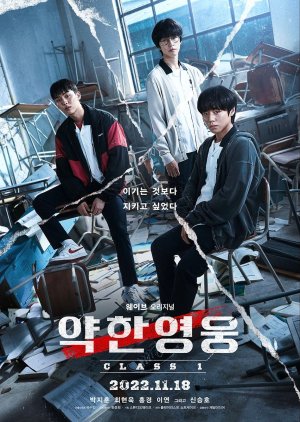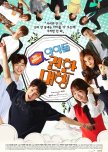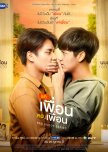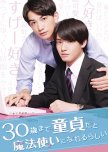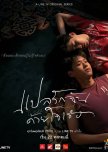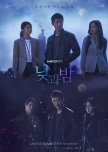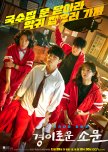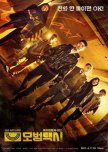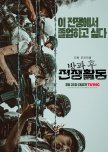
- action dramas set in high school
- both have great fight scenes and action scenes
- some cast members are the same
- quite a lot of similar scenes; if you’ve seen weak hero then you’ll 100% get deja vu while watching duty after school
- both have great fight scenes and action scenes
- some cast members are the same
- quite a lot of similar scenes; if you’ve seen weak hero then you’ll 100% get deja vu while watching duty after school
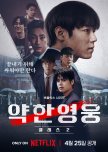
Entertaining big families that come close to heart.
The way both dramas deal with family-only dynamics is peaceful.
Full of comedy.
Heart-filling romances.
Double in-law couples.
The way both dramas deal with family-only dynamics is peaceful.
Full of comedy.
Heart-filling romances.
Double in-law couples.

-Both dramas surrounded school bullying
-Both drama has rich spoiled kid who is abused at home and take it out by bullying classmates
-Both drama gives same vibes
-Both drama has rich spoiled kid who is abused at home and take it out by bullying classmates
-Both drama gives same vibes
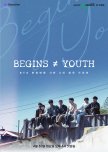
Both dramas revolve around troubled youth/high school students and strong and heartwarming bromance. Although the plot itself isn't too similar, the vibes in general (youth & school setting, violence & angst, bromance & mostly male cast) are.
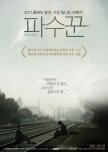
Both have high school violence and bullying
Will definitely both make you cry
Both about 3 friends going through school
You can see the development and the destruction of their friendships
ABSOLUTELY HEARTWRENCHING
Will definitely both make you cry
Both about 3 friends going through school
You can see the development and the destruction of their friendships
ABSOLUTELY HEARTWRENCHING
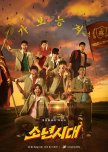
Focus on Bullying: Both stories feature protagonists who are bullied regularly. In "Boyhood," Mason faces physical and emotional bullying from his classmates and even older students. In "Weak Class Hero," Yeon-Shi suffers relentless academic and physical harassment from the "Union 3," a tyrannical student gang.
Coming-of-Age Struggles: Both narratives depict the challenges and uncertainties of growing up. In "Boyhood," Mason navigates first relationships, academic pressures, and family difficulties. In "Weak Class Hero," Yeon-Shi grapples with his anger, isolation, and the desire for justice.
Underdog Protagonists: Both protagonists are initially portrayed as weak and vulnerable. Mason shrinks from confrontation and seeks solace in escapism. Yeon-Shi, though physically capable, lacks the confidence and strategy to challenge the bullies directly.
Transformation and Growth: Over time, both characters experience a subtle but significant transformation. Mason develops a stronger sense of self and learns to navigate social complexities. Yeon-Shi, through strategic maneuvers and alliances, begins to dismantle the Union 3's power structure
Coming-of-Age Struggles: Both narratives depict the challenges and uncertainties of growing up. In "Boyhood," Mason navigates first relationships, academic pressures, and family difficulties. In "Weak Class Hero," Yeon-Shi grapples with his anger, isolation, and the desire for justice.
Underdog Protagonists: Both protagonists are initially portrayed as weak and vulnerable. Mason shrinks from confrontation and seeks solace in escapism. Yeon-Shi, though physically capable, lacks the confidence and strategy to challenge the bullies directly.
Transformation and Growth: Over time, both characters experience a subtle but significant transformation. Mason develops a stronger sense of self and learns to navigate social complexities. Yeon-Shi, through strategic maneuvers and alliances, begins to dismantle the Union 3's power structure
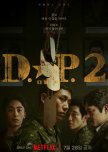
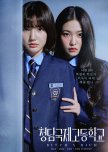
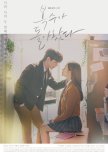
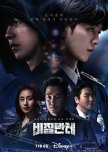
They are both about how violence breeds violence, with situations that spiral out of control.
They feature similar themes of retribution and I also think the vibes are similar.
Apart from that, the dramas are different in terms of the setting and character ages. Although both feature students, one features a Policy-Officer in training while the other feature high school students.
WHC1 is about bullies and while there is some implicit critques of society, it is "closer" to the characters than in Vigilante where the critque of society is specifically about injustice in the criminal system.
Both also feature a Bromance (WHC1's is more plot relevant) and has characters I grew to care about almost instantly.
They feature similar themes of retribution and I also think the vibes are similar.
Apart from that, the dramas are different in terms of the setting and character ages. Although both feature students, one features a Policy-Officer in training while the other feature high school students.
WHC1 is about bullies and while there is some implicit critques of society, it is "closer" to the characters than in Vigilante where the critque of society is specifically about injustice in the criminal system.
Both also feature a Bromance (WHC1's is more plot relevant) and has characters I grew to care about almost instantly.

These are both action-packed shows that start off with the character having a hard time because their character development hasn't kicked in. But as both shows go on, you start to see the dominance, and the vengeance starts to grow in the characters.
While Big Mouth is a husband-and-wife duo that starts off having the ML cute and flexible but not successful at all, while the FL is trying to support them both... As the show progresses, the ML starts to face challenging situations that refine his overall character. The ML has one of the biggest changes in character I have probably ever seen in a show, and there is never a dull moment because of it!
Big Mouth also seems to have two plots going on at the same time: the main plot that the ML is tangled up in and the subplot that the FL is working on. But both of these plots end up crossing each other in unexpected ways, causing the show to be an absolute masterpiece.
While Big Mouth is a husband-and-wife duo that starts off having the ML cute and flexible but not successful at all, while the FL is trying to support them both... As the show progresses, the ML starts to face challenging situations that refine his overall character. The ML has one of the biggest changes in character I have probably ever seen in a show, and there is never a dull moment because of it!
Big Mouth also seems to have two plots going on at the same time: the main plot that the ML is tangled up in and the subplot that the FL is working on. But both of these plots end up crossing each other in unexpected ways, causing the show to be an absolute masterpiece.


firstly... even if you haven't watched better days... it's a great movie.. a masterpiece i am not overrating you can see it has the highest c-movie rating
next.. common things are
- bullying and gangs picking on kids ( in better days it's girls while in whc1 it's boys )
- friendship and love ( love is more prominent in better days like friendship is in whc1 but they are portraiyed as friends only throughout the movie )
- overall theme which is dark showing true personality of non caring system and adults which always don't look both side of the story
- i promise you will love them both give it a try!!
next.. common things are
- bullying and gangs picking on kids ( in better days it's girls while in whc1 it's boys )
- friendship and love ( love is more prominent in better days like friendship is in whc1 but they are portraiyed as friends only throughout the movie )
- overall theme which is dark showing true personality of non caring system and adults which always don't look both side of the story
- i promise you will love them both give it a try!!
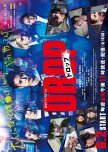
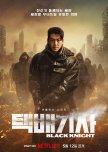
Both are action packed stories with focus on friendship instead of romance.
Weak hero is more focused on relationships and emotions, while maintaining great story telling and action bits while Black Knight focuses more on the main story and the main conflict. Black Knight doesn't develop the characters as much but there's still sense of comraderie and the general feeling of vindication is the same
Weak hero is more focused on relationships and emotions, while maintaining great story telling and action bits while Black Knight focuses more on the main story and the main conflict. Black Knight doesn't develop the characters as much but there's still sense of comraderie and the general feeling of vindication is the same

